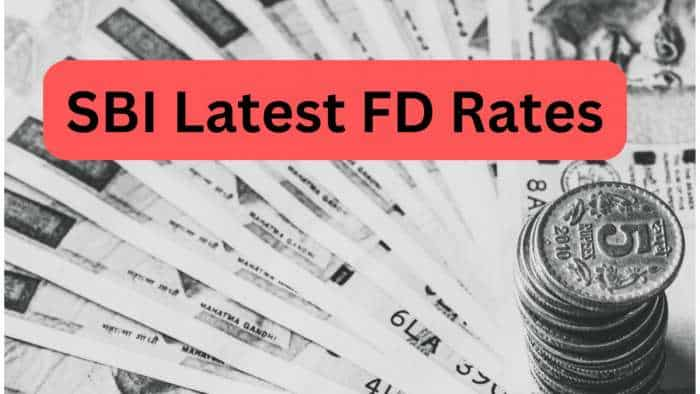Asian markets bounce back from omicron sell-offs
Asian shares were mostly higher on Tuesday after a worldwide slump for financial markets spurred by worries about how badly the omicron variant, inflation and other forces will hit the world economy.

Asian shares were mostly higher on Tuesday after a worldwide slump for financial markets spurred by worries about how badly the omicron variant, inflation and other forces will hit the world economy.
Tokyo gained nearly 2 per cent and other benchmarks in Asia also were higher.
See Zee Business Live TV Streaming Below:
Much of the concern over the outlook has been driven by the omicron variant of coronavirus.
Cases have skyrocketed in Europe and in the US, federal health officials have announced it accounted for 73 per cent of new infections last week, a nearly six-fold increase in only seven days.
In Asia, cases of coronavirus have surged in Australia and South Korea, as governments tighten precautions to prevent or curb outbreaks.
Tokyo's Nikkei 225 index rose 2% to 28,496.83 and the Hang Seng in Hong Kong added 0.3% to 22,798.23. In Seoul, the Kospi gained 0.3% to 2,972.79, while the Shanghai Composite index picked up 0.2% to 3,601.53. In Sydney, the S&P/ASX 200 climbed 0.4% to 7,323.90.
Shares fell around the world on Monday. Stocks of oil producers helped lead the way lower after the price of U.S. Crude fell 3.7% on concerns the newest coronanvirus variant could lead factories, airplanes and drivers to burn less fuel.
Oil prices advanced early Tuesday, with U.S. Crude gaining 81 cents to $69.42 per barrel in electronic trading on the New York Mercantile Exchange. Brent crude, the international standard for pricing, rose 69 cents to $72.21 per barrel.
Omicron may be the scariest force hitting markets, but it's not the only one.
A proposed $2 trillion spending program by the U.S. Government took a potential death blow over the weekend when an influential senator said he could not support it.
Markets are also still absorbing last week's momentous move by the Federal Reserve to more quickly remove the aid it's throwing at the economy, because of rising inflation.
They all combined to drag the benchmark S&P 500 1.1% lower to 4,568.02. The Dow Jones Industrial Average fell 1.2%, to 34,932.16. The Nasdaq composite fell 1.2%, to 14,980.94.
Smaller company stocks fared worse than the rest of the market. The Russell 2000 index fell 1.6%, to 2,139.87.
Occidental Petroleum slid 3.8%, leading a long list of losing oil stocks. Producers of raw materials, technology companies and financial stocks also fell amid the omicron worries. Steelmaker Nucor lost 5.8%,
Microsoft slid 1.2% and Synchrony Financial, which offers store-brand credit cards and other financial products, dropped 5.2%.
The Dutch government began a tough nationwide lockdown on Sunday, while a U.K. Official on Monday said he could not guarantee new restrictions would not be announced this week. The Natural History
Museum, one of London's leading attractions, said Monday it was closing for a week because of front-of-house staff shortages. In the U.S., President Joe Biden will announce on Tuesday new steps he is taking, while also issuing a stark warning of what the winter will look like for Americans that choose to remain unvaccinated, the White House press secretary said over the weekend.
Another feared outcome of the omicron variant is that it could push inflation even higher and if it leads to closures at ports, factories and other key points of the long global supply chains leading to customers could worsen already ensnarled operations.
Such troubles helped drive prices at the consumer level in November up 6.8% from a year earlier, the fastest inflation in nearly four decades.
But some economists argue that omicron could have the opposite effect: If the variant leads to lockdowns or scares consumers into staying home, economic activity could slow, and with it, the surging demand that has overwhelmed supply chains and driven up consumer prices.
The worst-case scenario would see the economy decelerate without providing relief from already built-in inflation.
In currency trading, the U.S. Dollar rose to 113.65 Japanese yen from 113.61 yen. The euro strengthened to $1.1286 from $1.1283.
Get Latest Business News, Stock Market Updates and Videos; Check your tax outgo through Income Tax Calculator and save money through our Personal Finance coverage. Check Business Breaking News Live on Zee Business Twitter and Facebook. Subscribe on YouTube.
RECOMMENDED STORIES

Power of Rs 15,000 SIP: How long it will take to achieve Rs 7 crore corpus? See calculations to know

Largecap PSU Stock for 65% Gain in New Year: Anil Singhvi picks PSU bank for long term; know reasons and target prices

PPF vs SIP: Rs 12,000 monthly investment for 30 years; see which can create higher retirement corpus

SIP in Stocks For New Year 2025: Market guru Anil Singhvi recommends 1 largecap, 2 midcap scrips to buy in dips; note down targets

Largecap, Midcap Stocks To Buy: Analysts recommend buying L&T, Tata Motors, 3 other stocks for 2 weeks; check targets
09:04 AM IST









 Headline indices likely to open in green; GIFT Nifty futures up nearly 50 pts
Headline indices likely to open in green; GIFT Nifty futures up nearly 50 pts Sensex, Nifty likely to open higher; GIFT Nifty futures up over 50 points
Sensex, Nifty likely to open higher; GIFT Nifty futures up over 50 points Share Market Today: Sensex, Nifty, likely to open in red; GIFT Nifty futures edge lower
Share Market Today: Sensex, Nifty, likely to open in red; GIFT Nifty futures edge lower Sensex, Nifty set to open higher; GIFT Nifty futures up over 50 pts
Sensex, Nifty set to open higher; GIFT Nifty futures up over 50 pts Sensex, Nifty likely to open in red; GIFT Nifty futures down over 50 pts
Sensex, Nifty likely to open in red; GIFT Nifty futures down over 50 pts